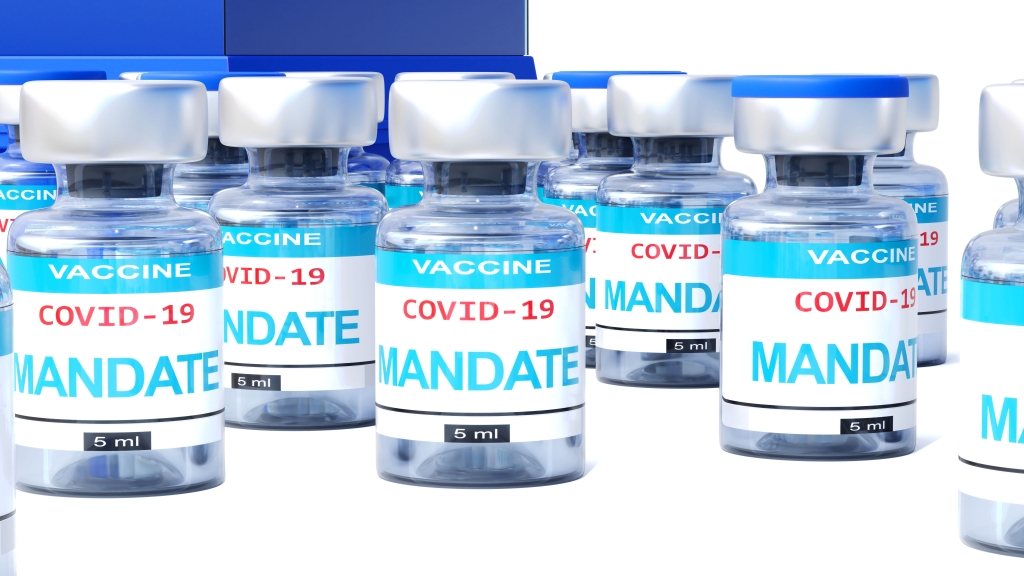
December 15, 2021
By Cody Weyhofen, Mark Opara,John Neyens, and John Vering
On November 29 and 30, 2021, the Eastern District of Missouri and Western District of Louisiana, respectively, issued injunctions blocking the Centers for Medicare and Medicaid Services (“CMS”) from implementing its Interim Final Rule (the “Interim Final Rule), which requires facilities participating in Medicare or Medicaid to have a fully vaccinated workforce by January 4, 2022.
The CMS Interim Final Rule
The Interim Final Rule applies to a multitude of healthcare providers participating in Medicare or Medicaid, including hospitals, long-term care facilities, nursing homes, and others. The Interim Final Rule required staff not subject to medical, disability, or religious exemptions to receive at least the first dose of a two-dose vaccine or a single-dose vaccine by December 5, 2021, and to be fully vaccinated by January 4, 2022.
Federal Courts Block Enforcement
On November 29, 2021, the Eastern District of Missouri enjoined CMS from enforcing the Interim Final Rule in ten states including Missouri and Kansas, citing, among other reasons, the lack of clear congressional authorization for the rule and the “more than likely” possibility that the Interim Final Rule would exacerbate the already-existing staffing problems in healthcare facilities. The following day, the U.S. District Court for the Western District of Louisiana issued a nationwide stay on enforcement of the Interim Final Rule on similar grounds.
Looking Forward
As of the time of this writing, the CMS Mandate remains enjoined in all fifty states. Although the Biden Administration asked both the Missouri and Louisiana Courts to stay enforcement of their respective injunctions pending appeal, both Courts denied the Administration’s request in separate orders on December 1, 2021.
The Missouri and Louisiana Courts’ orders prohibit only CMS from enforcing vaccine mandates. In other words, the preliminary injunctions do not prohibit private employers, including healthcare facilities subject to the CMS Mandate, from implementing and enforcing their own mandatory vaccine policies. However, those employers should be mindful that a growing number of states have either passed or are considering passing laws that curtail employers’ ability to impose vaccination requirements.
For example, under recently enacted Kansas House Bill No. 2001, if an employer implements a vaccination policy, the employer must provide exemptions for employees who submit a written waiver stating that compliance with the policy would “endanger the life or health of the employee or an individual residing with the employee,” or “violate sincerely held religious beliefs of the employee.” Notably, the employer must grant an exemption request based on religious beliefs without inquiring into the sincerity of the request. This means that employers who voluntarily impose vaccine mandates may need to revise their exemption request forms. This statute provides for potential fines of up to $50,000 per violation. Also, the Kansas statute is unclear regarding whether an employer can grant a religious exemption, but also determine that it is unreasonable to accommodate the religious exemption for that employee.
Healthcare facilities are encouraged to closely monitory any future developments and consult Seigfreid Bingham’s employment law practice group for further information.
This article is general in nature and does not constitute legal advice. Please note that the mandates referenced above present many novel legal questions, and we encourage you to seek legal advice for the application of these and related laws to your specific situation. Please note that legal requirements are changing on a daily basis. Readers with legal questions should consult Cody Weyhofen (Cweyhofen@sb-kc.com), Mark Opara (MOpara@sb-kc.com), John Neyens (JohnN@sb-kc.com), John Vering (JVering@sb-kc.com), or your regular contact at Seigfreid Bingham at (816) 421-4460.
